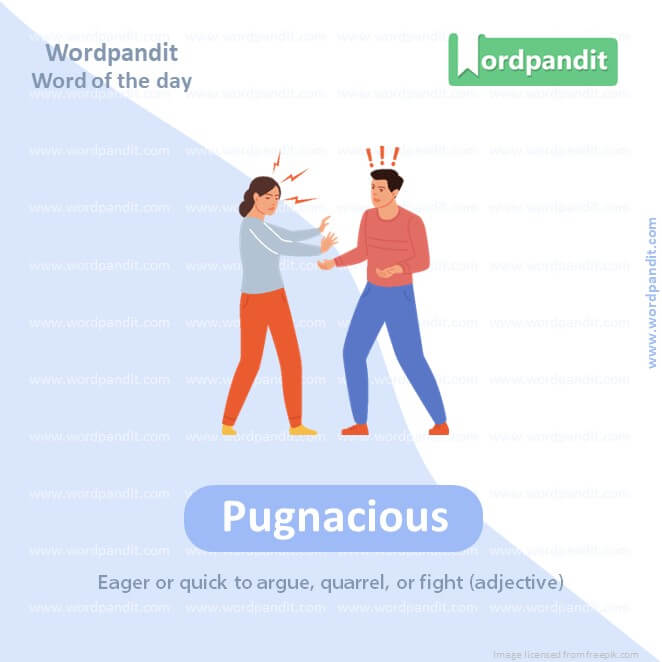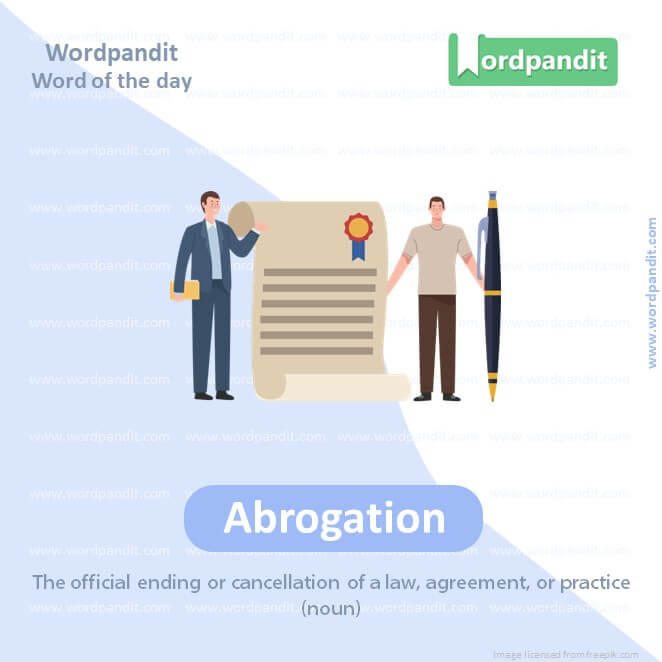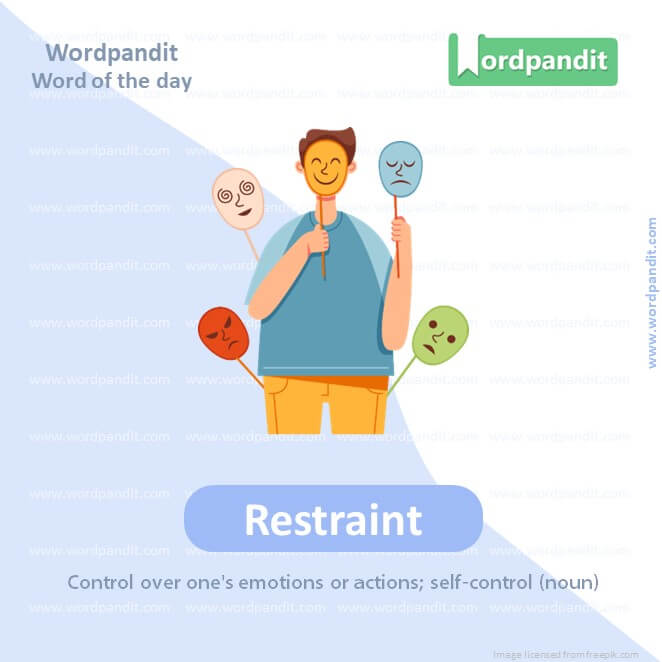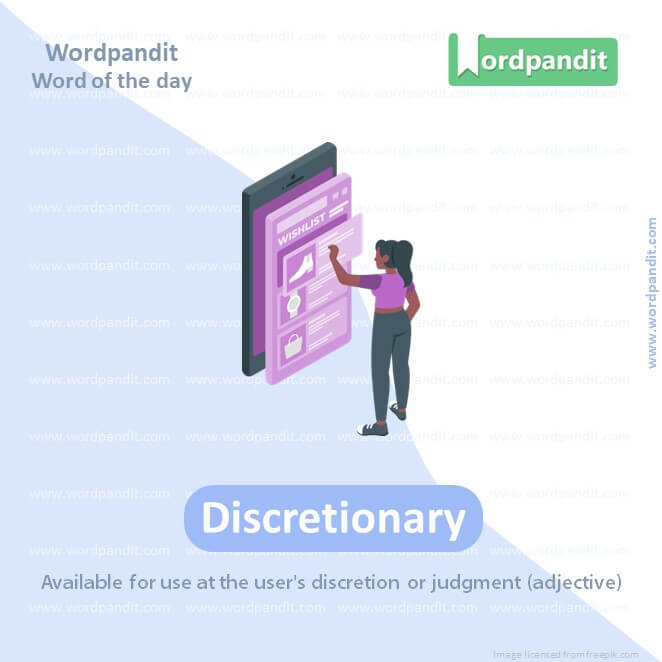Daily Vocabulary Words: Enhance Your Lexicon with Leading Newspapers & Publications
Welcome to the Daily Vocabulary section at Wordpandit!
Our mission is straightforward: to bring you essential vocabulary words featured in top newspapers and publications worldwide. By focusing on words you’ll encounter in renowned sources, we aim to help you enhance your vocabulary effectively and practically.
Our selection includes words from:
– The New York Times
– The Washington Post
– Scientific American
– BBC
– The Guardian
– Psychology Today
– Wall Street Journal
– The Economist
– The Hindu
– The Times of India
– The Economic Times
– Hindustan Times
– Live Mint
– The Indian Express
– And many more.
We are committed to your vocabulary development. Simply visit this section regularly and explore the daily posts. This is your go-to repository for commonly used words, providing significant practical benefits by familiarizing you with vocabulary from the leading publications listed above.
Make it a habit to visit our website daily and expand your lexicon with words from top newspapers and publications.

WORD-1: PUGNACIOUS
CONTEXT: He flew to Pennsylvania on Friday to visit Valley Forge and make a pugnacious speech invoking an earlier moment when we were fighting against despotism and clinging to a dream of a democracy.
SOURCE: Times of India
EXPLANATORY PARAGRAPH: Imagine a little dog who always wants to bark and growl at others, even when no one is bothering it. That dog is acting very “pugnacious.” When someone is pugnacious, it means they are always ready to fight or argue, even if they don’t need to.
MEANING: Eager or quick to argue, quarrel, or fight (adjective)
PRONUNCIATION: puhg-NAY-shuhs
SYNONYMS: combative, belligerent, aggressive, quarrelsome, argumentative, hostile, feisty
USAGE EXAMPLE:
1. The pugnacious boy was always looking for a reason to start a fight on the playground.
2. Her pugnacious attitude made it hard for her to get along with others.
3. The dog’s pugnacious behavior worried the neighbors.
4. Even in a calm situation, his pugnacious nature made him seem angry.
WORD-2: CULMINATE
CONTEXT: This month, a 550-year-long epochal wait will finally culminate to herald the civilisational renaissance of Bharat, when Prime Minister (PM) Narendra Modi takes part in the pran pratistha ceremony at Ayodhya’s Ram Mandir.
SOURCE: Hindustan Times
EXPLANATORY PARAGRAPH: Think of building a tower with blocks, and when you place the last block on top, your tower is complete. That’s what “culminate” means—when something reaches its highest or most important point, like the last block on your tower.
MEANING: To reach the highest or most important point of something (verb).
PRONUNCIATION: KUHL-muh-nayt
SYNONYMS: conclude, peak, climax, result, finish, end, complete
USAGE EXAMPLE:
1. The fireworks display will culminate with a grand finale.
2. Her hard work culminated in a big promotion at work.
3. The school year culminates in a graduation ceremony.
4. The meeting culminated in a decision to move forward with the project.
WORD-3: TRIUMPHANT
CONTEXT: The Tamil collection of poetry, Akananooru, composed 2,000 years ago cites a triumphant Rama conversing under a banyan tree at Dhanushkodi.
SOURCE: Hindustan Times
EXPLANATORY PARAGRAPH: Imagine winning a race and holding up a trophy with a big smile on your face. You feel very happy and proud because you won. That feeling is called being “triumphant.” When someone is triumphant, they are very happy because they succeeded at something.
MEANING: Feeling or expressing great happiness because of a victory or success (adjective).
PRONUNCIATION: try-UHM-fuhnt
SYNONYMS: victorious, successful, jubilant, elated, proud, exultant, winning
USAGE EXAMPLE:
1. The triumphant team celebrated their victory with a big party.
2. She felt triumphant after solving the difficult puzzle.
3. The triumphant music played as the hero saved the day.
4. His triumphant return home was greeted with cheers.
WORD-4: QUINTESSENTIALLY
CONTEXT: This mention in the Sangam age literature quintessentially illustrates how Lord Rama personifies Bharat’s civilisational connect.
SOURCE: Hindustan Times
EXPLANATORY PARAGRAPH: Imagine something that is the perfect example of what it should be, like the best ice cream that tastes exactly like you expect ice cream to taste. When something is “quintessentially” something, it means it is the best and most typical example of that thing.
MEANING: In a way that represents the most perfect or typical example of something (adverb).
PRONUNCIATION: kwin-tuh-SEN-shuh-lee
SYNONYMS: perfectly, ideally, typically, classically, exemplarily, essentially, ultimately
USAGE EXAMPLE:
1. The dish was quintessentially Italian, with rich flavors and fresh ingredients.
2. She dressed in a quintessentially elegant style for the party.
3. His performance was quintessentially flawless, showing great skill.
4. The city is quintessentially known for its historic landmarks.

WORD-5: ABROGATION
CONTEXT: The abrogation of Article 370, cultural restoration is underway in Jammu and Kashmir at 123 identified places.
SOURCE: Hindustan Times
EXPLANATORY PARAGRAPH: Imagine you are playing a game with your friends, and suddenly someone decides to stop the game and say the rules don’t count anymore. That’s what “abrogation” means—it’s when someone cancels or stops something, like a rule or agreement, so it doesn’t exist anymore.
MEANING: The official ending or cancellation of a law, agreement, or practice (noun)
PRONUNCIATION: ab-ruh-GAY-shuhn
SYNONYMS: cancellation, repeal, annulment, abolition, revocation, nullification, termination
USAGE EXAMPLE:
1. The abrogation of the old law made many people happy.
2. The treaty’s abrogation led to new negotiations between the countries.
3. The abrogation of the contract caused confusion among the employees.
4. Many protested the abrogation of their rights.
WORD-6: INEXTRICABLY
CONTEXT: His vision of a modern Viksit Bharat is inextricably intertwined with reconnecting our people to their parampara.
SOURCE: Hindustan Times
EXPLANATORY PARAGRAPH: Imagine two pieces of string that are so tangled up together that you can’t separate them no matter how hard you try. They are “inextricably” tied together. When something is inextricably linked to something else, it means they are so closely connected that they can’t be separated.
MEANING: In a way that is impossible to separate or escape from (adverb).
PRONUNCIATION: in-ehk-STRIK-uh-blee
SYNONYMS: inseparably, tightly, indissolubly, inevitably, unavoidably, completely, inescapably
USAGE EXAMPLE:
1. The two friends were inextricably linked by their shared experiences.
2. History and culture are inextricably connected in the old town.
3. Her fate was inextricably tied to the decisions she made.
4. The stories of the two families were inextricably woven together.

WORD-7: RESTRAINT
CONTEXT: Both nations have not escalated the stand-off to a shooting war. Will this restraint be maintained by Beijing in 2024?
SOURCE: Indian Express
EXPLANATORY PARAGRAPH: Imagine you really want to eat all the cookies in the jar, but you stop yourself and only take one. That’s called “restraint.” When you show restraint, you are holding yourself back from doing something, even if you really want to do it.
MEANING: Control over one’s emotions or actions; self-control (noun)
PRONUNCIATION: rih-STREYNT
SYNONYMS: self-control, moderation, discipline, limitation, restriction, constraint, suppression
USAGE EXAMPLE:
1. He showed great restraint by not arguing back during the meeting.
2. The teacher asked the students to show restraint and wait their turn.
3. The dog was kept under restraint by a leash.
4. She exercised restraint when offered a second piece of cake.
WORD-8: REFORMATIVE
CONTEXT: These guidelines are a reformative step in that direction, an effective strategy is still required.
SOURCE: Indian Express
EXPLANATORY PARAGRAPH: Think of a broken toy that someone fixes to make it better and work like new. When something is “reformative,” it means it’s about fixing or changing things to make them better.
MEANING: Relating to the improvement or correction of something, especially in behavior or laws (adjective).
PRONUNCIATION: ree-FOR-muh-tiv
SYNONYMS: corrective, restorative, remedial, improving, rehabilitative, transformative, reconstructive
USAGE EXAMPLE:
1. The reformative programs helped the prisoners learn new skills.
2. Reformative measures were taken to improve the education system.
3. The school’s reformative approach changed the way students learned.
4. The reformative process turned the old building into a community center.

WORD-9: EXTRAPOLATED
CONTEXT: The last two years are too recent to be consigned to “history” but some of the most significant punctuations of 2022 and 2023 in the strategic domain could be extrapolated to the composite Indian national security challenge in the year ahead.
SOURCE: Indian Express
EXPLANATORY PARAGRAPH: Imagine you have a small piece of a puzzle, and you try to guess what the whole picture looks like just from that one piece. That’s what “extrapolated” means—taking a little bit of information and trying to figure out the bigger picture.
MEANING: To estimate or conclude something by extending or projecting known information (verb)
PRONUNCIATION: ehk-STRAP-uh-layt-id
SYNONYMS: inferred, deduced, projected, predicted, estimated, concluded, hypothesized
USAGE EXAMPLE:
1. The scientist extrapolated future trends from the current data.
2. From the results of the survey, she extrapolated the opinions of the entire group.
3. He extrapolated that it would rain based on the dark clouds.
4. The economist extrapolated the potential growth of the economy.

WORD-10: DISCRETIONARY
CONTEXT: The political party framework, are still incorporated in discretionary terms, for example, using “may.” A uniform mandate under all three heads is needed.
SOURCE: Indian Express
EXPLANATORY PARAGRAPH: Imagine you have some extra time after school, and you can choose whether to play, read, or watch TV. When something is “discretionary,” it means you get to decide how to use it.
MEANING: Available for use at the user’s discretion or judgment (adjective)
PRONUNCIATION: dih-SKRESH-uh-nair-ee
SYNONYMS: optional, voluntary, elective, flexible, open, available, non-compulsory
USAGE EXAMPLE:
1. The bonus is discretionary and depends on performance.
2. Employees have discretionary funds to spend on work-related needs.
3. The judge used discretionary power in sentencing the offender.
4. The teacher gave students discretionary time to work on their projects.
Vocabulary Words
When delving into the dynamic world of languages, the grandeur of ‘vocabulary words’ is all-encompassing. The importance of ‘vocabulary words’ in effective communication cannot be overstated; it’s these words that form the backdrop of any language, painting intricate pictures of thoughts and ideas.
Starting on the journey of learning ‘vocabulary words’, one should steer clear from rote memorization. The traditional structure of merely repeating words lacks the necessary context and application that actually embeds these words into your memory. To truly master the ‘vocabulary words’, one needs an integrated, immersive approach.
The first step towards mastering ‘vocabulary words’ is to engage with varied language mediums. Expanding beyond textbooks to read fiction, articles, blogs, and other forms of content not only diversifies your vocabulary but also acts as a mirror to reflect the practical application of these words. Essentially, you’re exposed to the words as they are commonly used, allowing you to truly understand their essence.
Empowering this journey, tech tools like language learning apps and memory-enhancing flashcards significantly aid in learning ‘vocabulary words’. These interactive tools provide a more engaging learning experience and hone word retention. Mnemonic devices, associating words with a unique story or visual image, enrich the process and make memory recall more efficient.
Practicing ‘vocabulary words’ by using them in day-to-day conversations exemplifies learning by doing. It also strengthens the neural pathways and improves overall word recall. This, coupled with regular revisions, ensures your grasp over ‘vocabulary words’ remains strong.
In conclusion, learning ‘vocabulary words’ is not just about adding words to your linguistic cupboard, but understanding their essence and utilizing them effectively. An inclusive approach to learning that combines diverse reading materials, technology tools, mnemonic devices and practice can really propel your mastery over ‘vocabulary words’. Remember, language is the bloodline of communication, and ‘vocabulary words’ are its heartbeat. ‘











